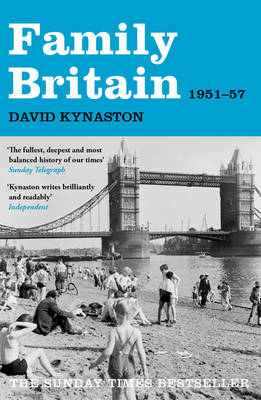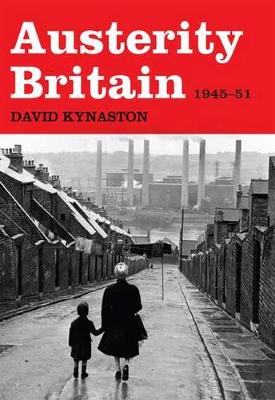Tales of a New Jerusalem
2 total works
As in Austerity Britain, an astonishing array of vivid, intimate and unselfconscious voices drive this narrative. The keen-eyed Nella Last shops assiduously at Barrow Market as austerity and rationing gradually give way to relative abundance; housewife Judy Haines, relishing the detail of suburban life, brings up her children in Chingford; and, the self-absorbed civil servant Henry St John perfects the art of grumbling. These and many other voices give a rich, unsentimental picture of everyday life in the 1950s. We also encounter well-known figures on the way, such as Doris Lessing (joining and later leaving the Communist Party), John Arlott (sticking up on Any Questions? for the rights of homosexuals) and Tiger's Roy of the Rovers (making his goal-scoring debut for Melchester). All this is part of a colourful, unfolding tapestry, in which the great national events - the Tories returning to power, the death of George VI, the Coronation of Queen Elizabeth, the Suez Crisis - jostle alongside everything that gave Britain in the 1950s its distinctive flavour: Butlin's holiday camps, Kenwood food mixers, "Hancock's Half-Hour", Ekco television sets, Davy Crockett, skiffle and teddy boys.
Deeply researched, David Kynaston's "Family Britain" offers an unrivalled take on a largely cohesive, ordered, still very hierarchical society gratefully starting to move away from the painful hardships of the 1940s towards domestic ease and affluence.
Deeply researched, David Kynaston's "Family Britain" offers an unrivalled take on a largely cohesive, ordered, still very hierarchical society gratefully starting to move away from the painful hardships of the 1940s towards domestic ease and affluence.
Coursing through "Austerity Britain" is an astonishing variety of voices - vivid, unselfconscious, and unaware of what the future holds. A Chingford housewife endures the tribulations of rationing; a retired schoolteacher observes during a royal visit how well-fed the Queen looks; a pernickety civil servant in Bristol is oblivious to anyone's troubles but his own. An array of working-class witnesses describe how life in post-war Britain is, with little regard for liberal niceties or the feelings of their 'betters'. Many of these voices will stay with the reader in future volumes, jostling alongside well-known figures like John Arlott (here making his first radio broadcast, still in police uniform), Glenda Jackson (taking the 11+) and Doris Lessing (newly arrived from Africa, struck by the levelling poverty of postwar Britain. David Kynaston weaves a sophisticated narrative of how the victorious 1945 Labour government shaped the political, economic and social landscape for the next three decades.
Deeply researched, often amusing and always intensely entertaining and readable, the first volume of David Kynaston's ambitious history offers an entirely fresh perspective on Britain during those six momentous years.
Deeply researched, often amusing and always intensely entertaining and readable, the first volume of David Kynaston's ambitious history offers an entirely fresh perspective on Britain during those six momentous years.

